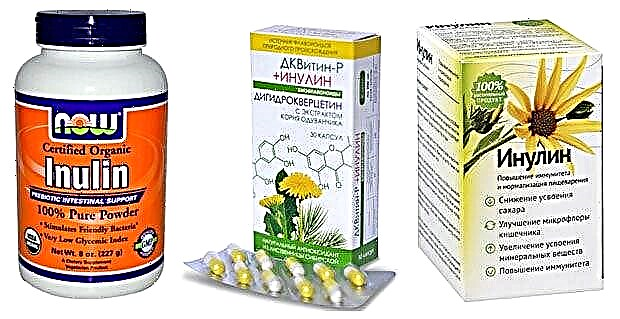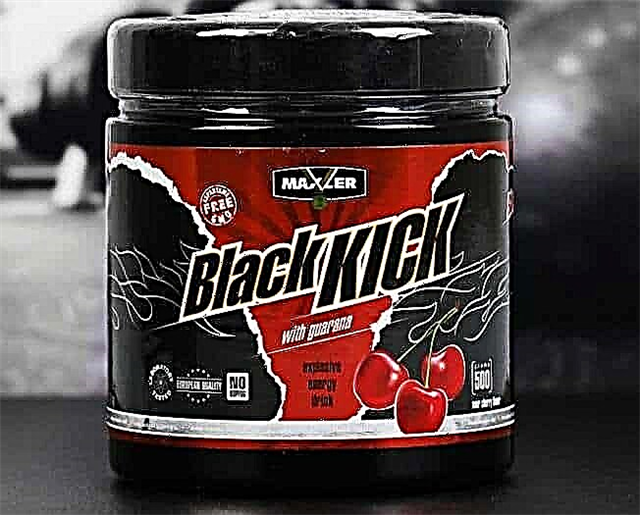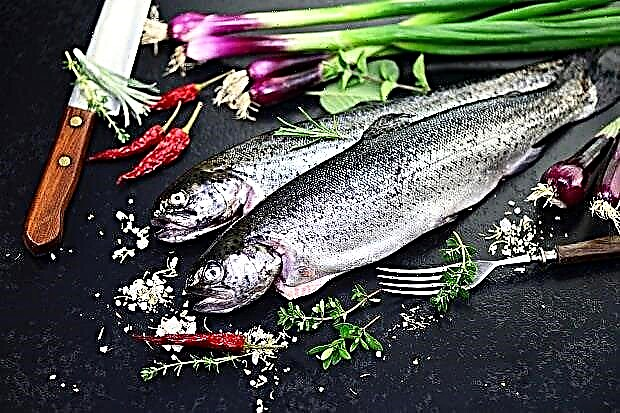Raspberries are a healthy berry, which contains a large amount of vitamin C, many micro- and macroelements. The berry is a natural source of phenolic and flavonoid substances with antioxidant properties. These compounds strengthen the immune system and prevent pathological changes in cells.
Raspberries have medicinal and beneficial properties. Not only fresh and frozen berry fruit is useful, but also leaves, branches and even roots. During colds, they often drink tea and a decoction of dried and fresh leaves and berries. With the help of raspberries, you can lose weight, and using berry oil made from seeds, you can improve the condition and color of your skin.
Calorie content and composition of raspberries
Raspberries are an incredibly healthy berry, the use of which will have a positive effect on the work of internal organs and health in general. The calorie content of fresh raspberries per 100 g is 45 kcal. Virtually no nutrients are lost during cooking, with the exception of high heat treatment.
Energy value of the berry:
- frozen raspberries without sugar - 45.4 kcal;
- dried - 115 kcal;
- an hour with raspberries (without sugar) - 45.7 kcal;
- grated raspberries with sugar - 257.5 kcal;
- jam - 273 kcal;
- compote - 49.8 kcal;
- fruit drink - 40.1 kcal.
One glass of fresh raspberries contains approximately 85.8 kcal.
Nutritional value of fresh raspberries per 100 grams:
- proteins - 0.8 g;
- fats - 0.5 g;
- carbohydrates - 8.3 g;
- water - 87.6 g;
- dietary fiber - 3.8 g;
- ash - 0.5 g;
- organic acids - 3.7 g
The ratio of BJU per 100 g of frozen berries is similar - 1 / 0.6 / 10.4, respectively. For the dietary menu, it is recommended to use ripe fruits without additional ingredients and not subjected to heat treatment. It is also useful to include frozen raspberries in the diet, the main thing is to defrost the product naturally.
The chemical composition of berries per 100 g is presented in the form of a table:
| Item name | Amount of raspberries |
| Iron, mg | 1,2 |
| Manganese, mg | 0,21 |
| Aluminum, mg | 0,2 |
| Copper, mg | 0,17 |
| Boron, mg | 0,2 |
| Zinc, mg | 0,2 |
| Potassium, mg | 224 |
| Phosphorus, mg | 37 |
| Calcium, mg | 40 |
| Magnesium, mg | 22 |
| Sulfur, mg | 16 |
| Chlorine, mg | 21 |
| Silicon, mg | 39 |
| Sodium, mg | 10 |
| Ascorbic acid, mg | 25 |
| Choline, mg | 12,3 |
| Vitamin PP, mg | 0,7 |
| Vitamin E, mg | 0,6 |
| Thiamine, mg | 0,02 |
| Vitamin A, μg | 33 |
| Vitamin B2, mg | 0,05 |
| Vitamin K, μg | 7,8 |
In addition, the composition of raspberries contains glucose in the amount of 3.9 g, as well as fructose - 3.9 g and sucrose - 0.5 g per 100 g. The berry contains a small amount of polyunsaturated fatty acids such as omega-3 and omega -6.

© ma_llina - stock.adobe.com
Raspberry Leaves Contains:
- flavonoids;
- fiber;
- organic acids (fruit);
- mineral salts;
- salicylates;
- astringent and tanning compounds;
- potassium, phosphorus, iodine, magnesium and calcium.
There are resins, antioxidants and other biologically active substances necessary to maintain the body's vital functions.
The benefits of raspberries and medicinal properties
It is scientifically proven that daily consumption of fresh raspberries has a positive effect on well-being. The recommended daily dose is 10-15 berries.
The berry has a multifaceted therapeutic effect on the body:
- Relieves inflammation in the joints, so raspberries are recommended for people with diseases such as arthrosis and arthritis. Berries have the most effective effect on the joints in the early stages of the disease.
- Strengthens the heart muscle, cleanses blood vessels from cholesterol plaques, and normalizes blood pressure. Regular consumption of raspberries serves to prevent heart disease in men and women.
- Cleanses the intestines from toxins, toxins and poisons.
- Facilitates the course of menopause in women.
- Improves mood, strengthens the nervous system, relieves stress symptoms.
- Improves brain function, enhances memory.
- Normalizes the pancreas and maintains blood sugar balance
- Protects against surges in insulin, so the berry is recommended for people with diabetes and obesity.
- Improves the functioning of the reproductive organs, prevents the risk of male infertility and increases fertility.
- Normalizes the production of hormones.
- Accelerates recovery from colds. The best way to use it is raspberries with milk and honey.
In addition, the systematic use of raspberries helps to strengthen the immune system, as well as reduce the risk of atherosclerosis and cancer.
Note: frozen and dried raspberries have the same beneficial and healing properties as fresh ones. Raspberry jam and compote have antipyretic and analgesic properties. Raspberry tea is useful for colds, but it should be brewed for no more than 3 minutes.
The benefits for the body from raspberry juice and berries, ground with sugar, are the same as from fresh fruit, but with a higher calorie content. Juice can dull hunger.
Raspberry seeds are used in cosmetology for the manufacture of scrubs, face masks and creams. In addition, oils are made on the basis of seeds that have a beneficial effect on the condition of the skin, namely: anti-inflammatory, healing and soothing.

© ilietus - stock.adobe.com
Raspberry leaves
Raspberry leaves contain a large amount of nutrients, thanks to which both fresh and dry foliage have beneficial properties for human health. Decoctions and teas help with colds and provide:
- antipyretic effect;
- diaphoretic;
- anti-inflammatory;
- immunostimulating;
- astringent.
The foliage speeds up the healing process and stops bleeding.
During a sore throat, you can gargle with a decoction of the foliage. It will help get rid of acne on your face. Drinking a tincture is useful for inflammation of the gastrointestinal tract and to increase immunity.
On the basis of foliage, ointments are prepared that are used in the treatment of skin diseases such as rashes, eczema and even psoriasis.
The healing properties of brewed foliage are used in the treatment of such diseases:
- ARVI;
- stomach ulcer;
- inflammation of the gastrointestinal tract;
- conjunctivitis;
- hemorrhoids;
- colitis;
- stomatitis and other diseases of the oral cavity.
Leaves are actively used in cosmetology to rejuvenate the skin and strengthen the hair structure.
Fermented raspberry leaf teas are richer in flavor and aroma, but most of the nutrients are lost during fermentation, making it less beneficial than tea made from fresh or dried leaves.
Raspberry branches
The beneficial and healing effects of raspberry branches have been known for a long time. The benefits of the plant are equally great both fresh and dried. Decoctions are boiled from the branches, tinctures are made and used as lotions for damaged areas of the body.
With the help of decoctions they treat:
- colds (including flu), cough, bronchitis and upper respiratory tract inflammation;
- skin diseases;
- hemorrhoids;
- stomach pain;
- heartburn;
- stomach bleeding.
Using raspberry branches, you can strengthen the immune system, as well as the walls of blood vessels. In addition, blood clotting will improve and the risk of atherosclerosis will be reduced.
Decoctions based on raspberry branches help people with depression and neurasthenia. Raspberry tinctures and lotions have anesthetic and bactericidal effect.
Plant root for the body
The beneficial and therapeutic effect of plant roots on the body is the same as that of leaves and fruit, but the concentration of vitamins and other biologically active substances is higher. The roots have the most effective healing effect in the treatment of hemorrhoids accompanied by bleeding.
With the help of raspberry root they treat:
- bronchial asthma;
- inflammation of the lymph nodes.
In the first case, a decoction of roots and water is cooked for one hour, taken in a ratio of 50 g to 1 liter, respectively. Take 5-8 times a day, a couple of tablespoons at a time.
In the second, you need to take raspberry root, fir legs and honey, mix in equal amounts and cook over low heat for 8 hours. Take 5-6 times a day, one tablespoon.
Raspberry for weight loss
To lose weight with raspberries, you need to eat half a glass of fresh berries three times a day half an hour before meals.
The berry is useful for losing weight for several reasons:
- has fat burning properties due to the lipolytic enzymes that are part of raspberries;
- has a low glycemic index, due to which it does not increase blood sugar levels;
- improves bowel function and digestive process;
- has a diuretic effect on the body, due to which excess fluid is removed and puffiness is removed.
In addition to excess fluid, salt and toxins are removed from the body. It is useful to include both fresh and frozen berries in the diet during the diet, but it must be consumed without sugar or any other sweeteners.

© nolonely - stock.adobe.com
Contraindications and harm of berries
When eating raspberry berries, leaves and root, harm to the body can be caused primarily by an allergy to the product.
Eating berries is contraindicated for people:
- with individual intolerance;
- impaired kidney function (due to the diuretic effect that raspberries have);
- bronchial asthma;
- exacerbation of diseases such as gastritis and ulcers.
A decoction of the leaves is contraindicated to drink at:
- chronic constipation;
- upset stomach;
- gout;
- jade;
It is not recommended to drink the broth for pregnant women who have a period of less than 34 weeks.
Raspberry branches should not be used by people with urolithiasis and gout.
Note: people with diabetes are not advised to exceed the daily intake of raspberries (10-15 berries per day) because of the sugar contained in the composition.
Outcome
Raspberries are a berry with beneficial and healing properties for women's and men's health, with a rich chemical composition and low calorie content. Raspberries can help you lose weight, get rid of shallow wrinkles on your face, strengthen your hair and clear your skin of acne. The systematic use of raspberries helps to strengthen the heart muscle and immunity, remove excess fluid and salts from the body.









